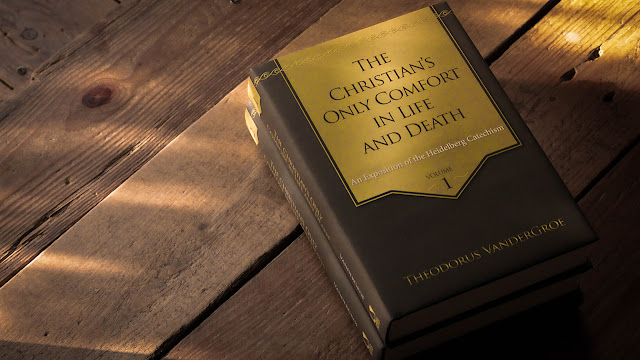Heidelberg Catechism Exposition
As we establish our stand as a covenant church we therefore stand upon each point of the Westminster Confession of Faith, and deem the Presbyterian form of church government to be what is biblical, correct, and proper for us.
One of the areas wherein we have been graciously set aright is the inclusion of the Heidelberg Catechism every Lord's day. The catechism has 129 questions and answers divided into 52 sections: one for each week of the year. This grounds us firmly in the application of the truths of God's word. Our gathering is also in the process of compiling our very own handbook, comprised of the English/Tagalog version of the Westminster Confession of Faith, and the Westminster Shorter and Larger Catechism, so that each member is adequately aware and fully conscious of his or her accountability in the Lord, something that is severely absent in the previous congregations we have been with. The book graciously provided below is a great aid to us as we are coming to the last two sessions of our 8 part study of the covenants.
An Exposition of the Heidelberg Catechism, 2 Vols. (VanderGroe)
Theodore VanderGroe (1705–1784) is one of the last and most well-known representatives of the Dutch Further Reformation. He devoted fifty-four years of his life to faithful preaching and pastoral ministry, serving two Reformed churches in the Netherlands: Rijnsaterwoude for ten years and Kralingen for forty-four years. His numerous books convey a healthy balance of Reformed doctrine combined with a biblical form of pastoral spirituality. His involvement in various ecclesiastical controversies led him to write extensively on the essence and assurance of faith, justification, and the relationship of law and gospel. His sermons on the Heidelberg Catechism, published here for the first time, have long been regarded as his most important work.
Book description from Heritage Books




Comments
Post a Comment